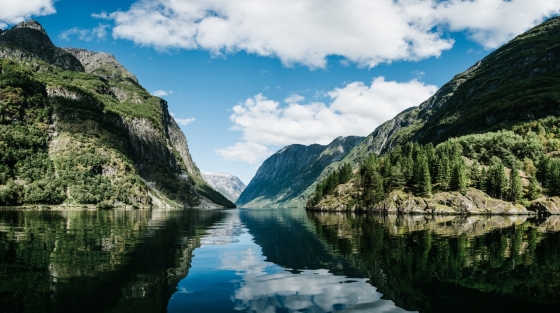Gjuvsland Weather and Climate: A Comprehensive Guide
The temperature in Gjuvsland can vary quite a bit throughout the year.
Temperatures can be pleasant during the warmest months,
and very cold during the cooler months.
It is also known for its large amounts of rain/snowfall.
Now, let’s explore all the climate details to give you a full picture.
Average maximum day and minimum night temperature
Visitors to Gjuvsland can expect significant temperature changes throughout the year. Typically, average maximum daytime temperatures range from a pleasant 19°C in July to a very cold 2°C in the coolest month, February.
Nights are cooler, with lows often dropping to around -5°C during the colder months.Check out our detailed temperature page for more information.
Temperature ranges by month
Precipitation and rainy days
Gjuvsland is known for its substantial rain/snowfall, with annual precipitation reaching 2859 mm. Gjuvsland offers a pleasant mix of wetter and slightly drier months. The difference in precipitation between December (308 mm) and May (154 mm) is not too significant, making the climate enjoyable for visitors and residents alike.
The mean monthly precipitation over the year, including rain, hail and snow
Sunshine over the year
For those who appreciate different seasons, Gjuvsland serves as an ideal destination. Expect longer, more sun-filled days in June with an average of 6.4 hours of sunshine daily, and embrace the darker days in December, offering only 0.4 hours of daily sunlight.
Visit our detailed sunshine hours page for more information.
Monthly hours of sunshine
Daily hours of sunshine
Average humidity
The relative humidity is high throughout the year in Gjuvsland.
The city experiences its highest humidity in September, reaching 79%. In April, the humidity drops to its lowest level at 72%. What does this mean? Read our detailed page on humidity levels for further details.
Relative humidity over the year
partly cloudy and no rain broken clouds and no rain overcast and no rainForecast for Gjuvsland
Select a Month of Interest
Check the conditions for any month of the year.
The best time of year to visit Gjuvsland in Norway
The average rainfall figures in Gjuvsland are quite high. Throughout the year, you have a chance of prolonged precipitation. So no matter what time of year you go, you will always have to deal with a high number of rainy days. This makes it more challenging to point out the best time of year to visit. If we needed to pick one month we would choose June which is the sunniest month of the year.Other facts from our historical weather data:
The coldest season / winter is in the following months: January, February and December.
July has an average maximum temperature of 19°C and is the warmest month of the year.
The coldest month is February with an average maximum temperature of 2°C.
December tops the wettest month list with 308 mm of rainfall.
May is the driest month with 154 mm of precipitation.
June is the sunniest month with an average of 193 hours of sunshine.
No idea where to travel to this year? We have a tool that recommends destinations based on your ideal conditions. Find out where to go with our weather planner.




